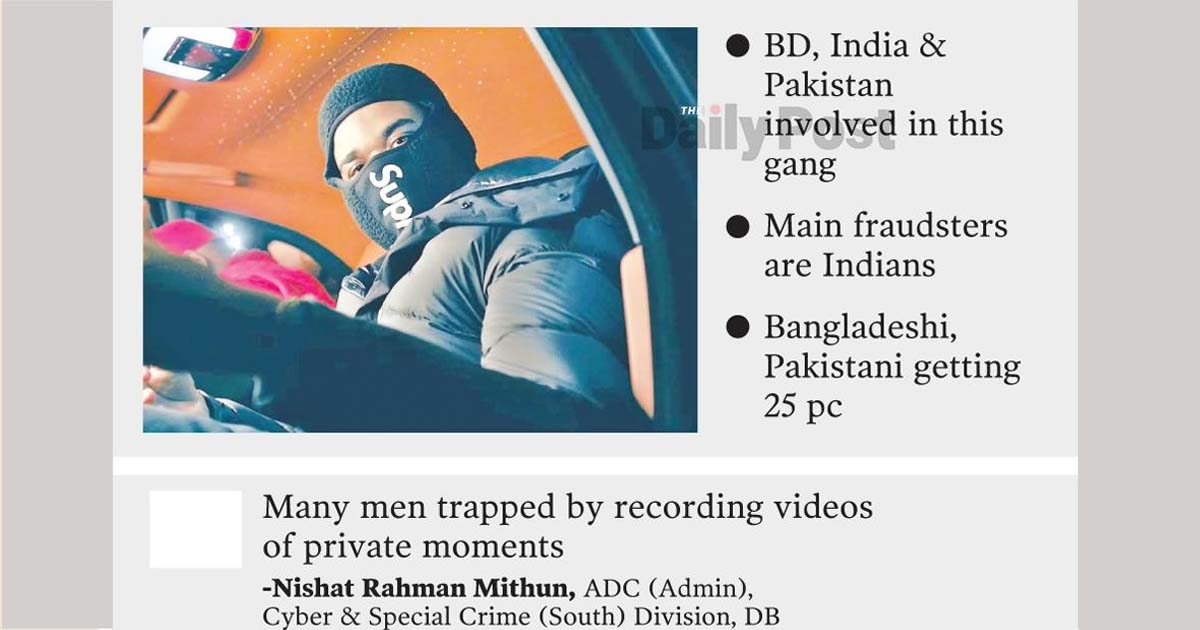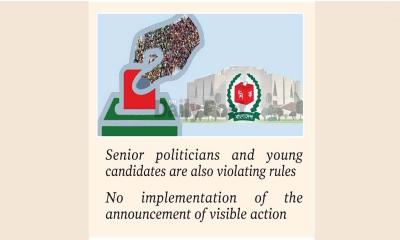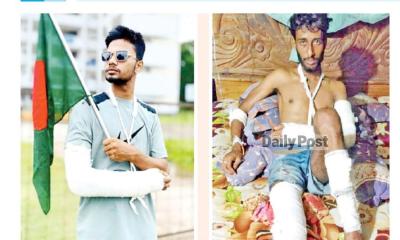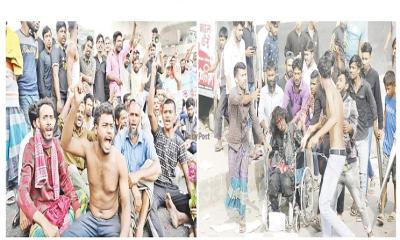- BD, India & Pakistan involved in this gang
- Main fraudsters are Indians
- Bangladeshi,Pakistani getting 25 pc
Identity through social media. Intimate moments recorded in video calls. A dangerous gang including fraudsters from neighboring countries India and Pakistan has been targeting upper-class, middle-class, college, and university students and talking to them via video calls. Unknowingly, the gang grabbed lakhs of taka by blackmailing, offensive pictures and videos of intimate moments and spreading them on social media. On August 29, Deepika sent a friend request to Agowal Hasan (pseudonym) from her Facebook ID. Later they met. At one stage of a close relationship, they started talking on video calls regularly.
At one point the cheater (Deepika Agoal) secretly captures semi-nude pictures and videos on Messenger and WhatsApp. Last September 1, the cheater sent several pictures and videos of intimate moments to Hasan's WhatsApp from the WhatsApp number used by Deepika Agoal. Later, he threatened to spread it on social media and make it viral. Later, the fraudulent gang demanded Tkone lakh from him. According to the information given by Detective Branch (DB) Police, two persons named Tipu Sultan and Muslim Rana living in Karail, Banani area of Dhaka are involved in such fraud. They target men and send requests on Facebook from fake IDs with girl names.
Once the targeted person responds to the request, the fraud gang members hire various girls from India to talk on video calls. They keep obscene pictures and videos without the victim's knowledge. The gang extorts money from the targeted individuals through blackmail. The cycle was formed as a joint initiative of Bangladeshi, Indian, and Pakistani nationals. The main target area of this tri-national gang is Bangladesh, the police intelligence department believes. Shakil is the mastermind of the fraud gang.
An Indian citizen sends Unified Payment Interface (UPI) agent Tipu Sultan to Bangladeshi agents to pay off loans to borrowers from loan apps and simultaneously extort money from victims by friending them on Facebook and taking obscene pictures and videos. He sends an impostor named Parvez as a Pakistani agent. Parvez calls and blackmails the victims and extorts money through UPI. Shakil of India takes 50 percent of this money. The remaining Bangladeshi agents get 25 percent and Pakistani agents 25 percent. Recently, the Cyber and Special Crime (South) Division of the Detective Branch (DB) arrested two local fraudsters named Tipu Sultan (27) and Muslim Rana (28) from the Banani Karail area of Dhaka.
Two mobile phones were seized from them. The complete information on how many incidents have taken place in Bangladesh so far and no related information or research report has been published. However, the Cybercrime Awareness Foundation published a report this year on the trend of cybercrime in Bangladesh. According to the report, the level of new types of cybercrime in the country has increased by 281.76 percent. 15.47 percent of the victims of cybercrime in the country have been threatened with online messages including blackmail. Also, 9.12 percent of victims were harassed through pornography.
The study also revealed that victims of cybercrime are extremely reluctant to seek police assistance. In the 2018 survey, the rate of complainants was 61 percent, in 2023 it has reduced to 20.83 percent. Many have mentioned the 'fear of damaging social image' as the reason for not going to the police.
In this regard, DB-Cyber and Special Crime (South) DC Tarek Ahmed said, requests to all, if you get any message from an unknown ID, do not befriend him. Even if you make friends, you should speak carefully in that case. It is not advisable to trust someone in a secret chat or video call. Anyone who has been a victim of such incidents must contact the Cyber Police.
On entrapment and cheating through screen recording, DB's Cyber and Special Crime (South) Additional Deputy Commissioner (ADC) Nishat Rahman Mithun said that cyber fraudsters are entrapping many men by recording offensive moments in video calls as a love trap. He also said that one should refrain from responding to friend requests, sending pictures or videos of oneself to anyone online, and talking on video calls in offensive situations. However, if anyone accepts the blackmailing, then the DB official is advised to contact the cyber department of the police.
ARS








